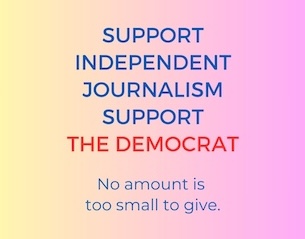- World
- UK Considers Up to 4-Week Delay to End of Lockdown Due to Delta Variant: Report
UK Considers Up to 4-Week Delay to End of Lockdown Due to Delta Variant: Report
The UK government is considering a delay of up to four weeks from the scheduled June 21 end to all lockdown restrictions amid a continuing rise in cases of the Delta variant of COVID-19, according to a media report on Saturday. It comes as the country reported 8,125 new COVID-19 cases in a 24-hour period,

The UK government is considering a delay of up to four weeks from the scheduled June 21 end to all lockdown restrictions amid a continuing rise in cases of the Delta variant of COVID-19, according to a media report on Saturday. It comes as the country reported 8,125 new COVID-19 cases in a 24-hour period, another record daily high since the end of February, and Public Health England (PHE) found that infections from the Delta variant the B1.617.2 variant of concern (VOC) first identified in India rose by nearly 30,000 in a week to hit 42,323.
Downing Street sources told the BBC that no final decision has been made yet and that several options are being evaluated as the latest data is studied before UK Prime Minister Boris Johnson makes a scheduled announcement regarding lockdown on Monday. The British Medical Association (BMA) is among some of the leading public healthcare groups and officials calling for a delay to the planned easing of all lockdown restrictions on June 21, dubbed Freedom Day as it would see all legal limits on social contact removed. Pushing the date back by a few weeks is intended to allow the country’s vaccination programme to take greater effect, as the rollout moves through to younger age groups and the older age groups get covered with their second jabs.
“It’s not just about the number of hospitalisations, but also the risk to the health of large numbers of younger people, who can suffer long-term symptoms,” said BMA council chairman Dr Chaand Nagpaul.
The June 21 date was set as the earliest point at which an end to all lockdown measures would be considered as part of a roadmap laid out by Boris Johnson earlier this year. It is tied to several criteria being met, including the vaccine rollout continues successfully; evidence shows vaccines effectively reduce hospitalisations and deaths in those vaccinated; infection rates do not risk a surge in hospitalisations which would put unsustainable pressure on the NHS and the assessment of risks is not fundamentally changed by new VOCs.
Of these four criteria, the one related to VOCs is the one tripping up the schedule as PHE’s latest analysis this week found that the Delta VOC was about 60 per cent more transmissible than the Alpha VOC identified in the UK and also reduces the effectiveness of vaccines to some extent. In details released on Friday, health officials said there is also analysis supporting a reduction in vaccine effectiveness for Delta compared to Alpha.
However, the analysis continues to show that vaccine effectiveness against the Delta VOC is higher after two doses. With an estimated two-thirds of people infected with the Delta variant not having had a single dose of a Covid vaccine, officials continue to stress the importance of taking up the vaccine to ensure protection against the VOC.
“We don’t want to squander those hard-fought gains that we have made through the vaccination programme,” said UK Vaccines Minister Nadhim Zahawi, in reference to the lockdown plans. The hospitality sector, including wedding venues, which are eagerly awaiting a lifting of all rules have expressed their concerns at the economic impact of a further delay.
Read all the Latest News, Breaking News and Coronavirus News here











